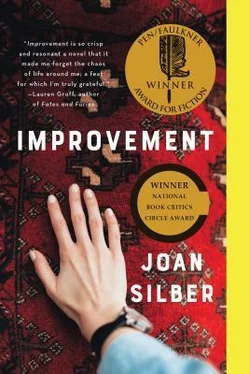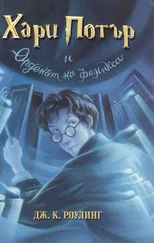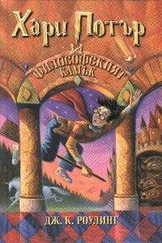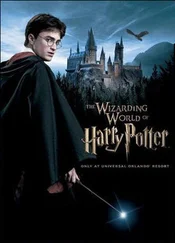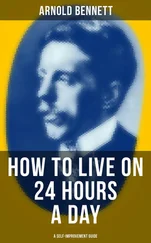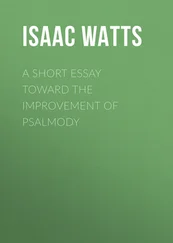Hours later, Dieter lay on the bed in his room, under a humming ceiling fan, smoking the last bit of hash from Istanbul and reading a backdated copy of Der Spiegel by a dim lamp. He could hear Steffi and Bruno through the wall, laughing and arguing and then sending a rhythm of creaking bedsprings. What was he doing, hearing other people fuck, like a lonely student? He was thirty-three, not so young. (How old was Kiki? He should’ve asked her.) The smuggling had been his idea, too. For too long he’d been making no money at all as a designer of typeface and clever lettering for advertisements. He’d known Bruno would want to come along—they’d played in the same rock band in college—but Steffi got on his nerves. Maybe he wouldn’t see either of them so much, once they were all back in Germany. Once they all had their money. He was getting homesick for Berlin, for his friends, his apartment. Maybe Kiki would visit him in Berlin.
At breakfast the next day, yogurt and olives and bread and tea, Dieter and Steffi had a difference of opinion. Steffi thought they should leave this no-good city at once and take off down the road to where the archaeological digs were, three or four hours away. “You think we’ll find a hotel, in the middle of nowhere?” Dieter said. “Don’t be crazy. We should go as a day trip and drive back here.”
“I’m not crazy. Our lovely van shouldn’t be driven more than it has to,” Steffi said.
Taking a Volkswagen bus had maybe not been the best idea. Some roads were too narrow for it and too rocky—it wasn’t the most stable vehicle in the world. They’d had one breakdown in Bulgaria nobody wanted to think about.
Dieter did want to give Kiki a chance to show up in Ankara, and he began to think he might stay on in the hotel here if the others insisted on leaving. He didn’t say this, but he had the idea in his head.
But Bruno voted with him to come back that night—maybe just to spite Steffi. Dieter had a distinct feeling Bruno planned to ditch her once they got back to Germany.
The morning was glaring hot and it was Bruno’s turn to drive. In the car he played cassettes they’d brought with them—Nina Hagen, eccentric and loud, was his favorite—so the car became a corner of Berlin, Bruno’s corner. A club on wheels. Dieter was startled when he looked through the window and saw road signs in Turkish and a landscape of dry hills with donkeys in the fields.
It wasn’t so easy to find any of the archaeological digs either. At a town that was just a row of stores, Bruno’s attempt to pantomime shoveling dirt got him nothing by way of directions. They were totally lost on a side road when they stumbled across a cleared area that looked promising. The road forked to a gravel byway and there it was: red dirt and rubble, with roped-off sections like garden plots, where Turkish men dug in room-size pits already deep as their waists. A sign said deutsches archäologisches institut, and then in English, german archaeological institute. Steffi was muttering about how Germans always found their way to good sites like these—Hittite ruins here—since the days when Ottomans used to let them do anything.
Steffi got out of the car first. “ Merhaba ,” she said, in her bad Turkish, to the men digging. “ Guten tag . Hello.” They barely paused to look at her. Not ready for a chat.
Bruno stooped down to offer one of the men a cigarette, which he took. Bruno tried to tell him they just wanted to look—he acted this out with a hand at his brow—and the man pointed to the ridge of land behind him and said, “ Profesör .”
They walked toward the ridge cautiously, trespassers relying on their Europeanness. Beyond them now they could see ancient colossal stone gateposts, with a growling lion carved onto one and a more eroded animal (was it a lion too?) on the other portal. High walls of piled-up stones lined either side of a long path beyond the gates. Dieter had not expected to be thrilled to see this, but he was.
Sitting in a deck chair drinking from a thermos was a skinny fifty-year-old in khaki shorts and a T-shirt with a cartoon bunny on it—the professor. Bruno shook his hand. “We are amateurs of archaeology,” Bruno told him, in German, “people of enthusiasm.” Bruno always did the talking.
“I guess you know you’re not supposed to be here,” the man said, more or less amiably. “You can look from this spot. That’s it.”
The lions were guarding their city fiercely; anyone could see that. They had been doing this for something like 3,400 years. There were other gates beyond this; it had been a huge city, bigger than Athens. Dieter had once had to memorize Bible verses, and he knew that King David married Bathsheba, widow of Uriah the Hittite. That was about all he knew about Hittites, except that German scholars had deciphered their cuneiform writing, according to the books he used to read about alphabets.
On the way out, Bruno stopped to hand around his pack of cigarettes to all the workmen. He said, “Bruno,” pointing to his chest, and shook their hands. Mehmet, Mustafa, Batur, some of them said. “Boğazkale,” he told them, with his chin toward the town where the three of them were finally going to have lunch. “ Biz eski ş eyler satın .” We buy old things, and he was probably saying it wrong.
It wasn’t much of a lunch at the café, toasted cheese sandwiches, but before they had finished their coffee, a man appeared at their table. He was a leathery old guy in a very worn sport jacket and a brown hat like a golf cap. “How are you?” he said in blurred English. “Maybe you want souvenirs.”
“We collect old ones,” Steffi said.
“You come to my store,” he said. This turned out to be the place across the road with piles of shining new aluminum pots and pails and basins on display. Inside it was jam-packed (who bought all this?) and there was barely room for them to stand; only Steffi got a chair. He made tea nonetheless, which the men drank standing up. From under a wooden counter the shopkeeper brought out a package rolled in newspaper, which he unwrapped with so much care Dieter half-expected it to be alive. What was it? It was a flat slab of dried red clay the size of a playing card, with close rows of incised marks that looked like bird tracks. Holy shit. Cuneiform, Hittite writing. Look at the dug-in triangles and dashes, the straight horizontal lines of them.
“Fuck,” Dieter said. “Oh, my God.” Awe was bad for bargaining but this was way, way outside their usual.
And part of him was horrified—what was it doing in some guy’s drawer?—this bit of terra-cotta so nakedly bearing the marks of a late–Bronze Age hand. Museums, of course, were filled with plunder. In London he’d seen the Rosetta Stone, that seven-hundred-kilo hunk of gray rock with three kinds of writing on it that Brits had triumphantly looted from Egypt. And in East Berlin, which he almost never crossed into, the Pergamon Museum had a whole Greek temple they’d hauled home to Germany from Turkey. Why was he shocked now?
“It’s broken,” Steffi said. The upper right corner had a piece chipped off, in a curve like the edge of a ski slope. “What do you want for it?”
And so it began. The man turned very angry at the first price Steffi named. He shouted something they couldn’t understand. Steffi stayed calm. “We haven’t come all this way to be yelled at,” she said. “And how do we know the piece is real?” The man glowered and brought a magnifying glass from the drawer. Steffi gave it to Dieter, who made a show of examining the tablet, leaning close, taking off his eyeglasses to look. How porous and delicate the clay looked, how cleanly cut. He had no fucking idea. He gave a slow nod, as if he did.
Читать дальше
